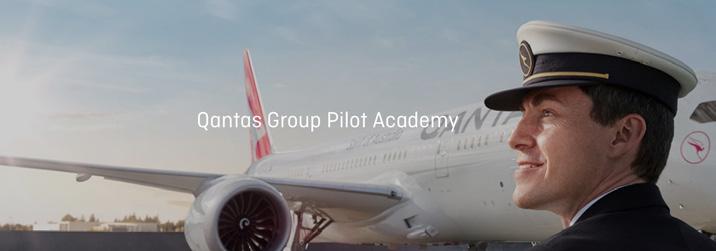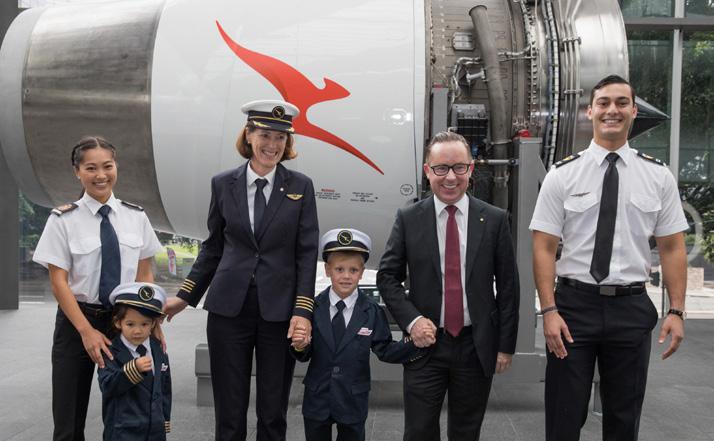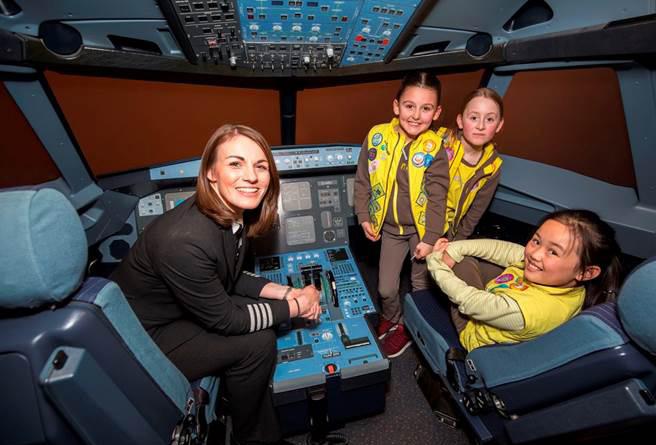
3 minute read
Qantas and Easyjet-Pilot Recruitment Programs
QANTAS AND EASYJET - PILOT RECRUITMENT PROGRAMMES
Globally, airlines have a recruitment problem when it comes to pilots.
Advertisement

Training company CAE’s annual report into the industry last year found that 70 new pilots a day will be needed for the next ten years to sustain expansion and demand.
One big problem is that pilots nearing retirement age are not being replaced. A University of North Dakota’s Aviation Department report found that the ‘pilot deficit’ will soar as a result, while CAE estimates that 50% of the pilots who will fly the world’s commercial aircraft in 10 years have not yet started to train.
As a result, airlines worldwide are starting to create and publicly promote pilot recruitment campaigns. One example is Qantas, which in late February announced the creation of the ‘Qantas Group Pilot Academy.’
Starting in 2019, the academy will initially train around 100 pilots a year for direct entry into the Qantas Group, including Jetstar and regional carrier, QantasLink. However, the programme could potentially expand to 500 pilots annually.
According to Qantas, the result could be the Southern Hemisphere’s largest flight academy.
This is a marketing report - is the Qantas announcement a marketing campaign? In a sense it is, and Qantas has produced both a nicely designed landing page (which for now just includes basic info and a form) as well as a short social media video to launch the initiative, which on Facebook has, at time of writing, notched up over 200k views.
Initiatives like this also matter from a PR point of view, with the Qantas announcement being extensively covered in both the Australian and international travel / aviation media.

That’s because awareness about the pilot shortage is growing, especially among frequent travellers who have been on the receiving end of it when even one pilot calling in sick can have a knock on effect on flight disruption.
Then there is a corporate and social responsibility message of being seen to be training the next generation (even if Qantas and other airlines have an interest in doing so).
Finally, by showcasing Qantas as a good employer, it is strengthening its brand value.

EASYJET GIRLGUIDING BADGE
One area many airlines are trying to focus on is increasingly the proportion of female pilots, which right now sits at under 5% worldwide. The Qantas Group Pilot Academy announcement follows a commitment by the airline to have at least a 50% female cadet intake within a decade.
The Qantas initiative is named after legendary Australian female aviator, Nancy Bird Walton, with Qantas boss telling business leaders last November that the airline would ‘up the ante’ in recruiting more women.
Another airline which has focused on female pilot recruitment is British LCC easyJet, with its Amy Johnson initiative, which has the target that 20% of new cadet pilots in 2020 should be female.
In early March, easyJet further highlighted its commitment to getting more women on board as pilots by launching a badge with youth organisation girl guides.
200,000 girls aged seven to ten will have the chance to qualify for the badge by challenging themselves to think of 40 things that fly and putting their engineering skills to the test.
This involves creating their own aircraft experiments with different building materials, structures and launch techniques.
A Girl Guide study found that becoming a pilot was named as a dream job by sevento 10-year-old girls, while three quarters feel encouraged by female role models doing jobs that they may one day want to do. As a result, the easyJet / girl guide campaign has current easyJet women pilots talking about their careers.
KEY TAKE-AWAY
There are good brand, as well as commercial reasons, to be seen as being proactive in recruiting and training the next generation of pilots.
The Qantas Group Pilot Academy has ambitious targets with up to 500 pilots being trained each year. It sounds serious and real, rather than a PR-led initiative.
At the same time, Qantas’ commitment to increasing female pilot recruitment and its ambitious 50% target for cadets is welcome and positions the company as progressive and modern.
Meanwhile, by partnering with the girl guides, easyJet is thinking ahead to the next 10-20 years. The badge is a nice initiative and certainly one that no airline has (to the best of our knowledge) done before. It gets across the company’s commitment to having more women piloting its aircraft in a much more userfriendly way compared to if it had simply issued a press release.










